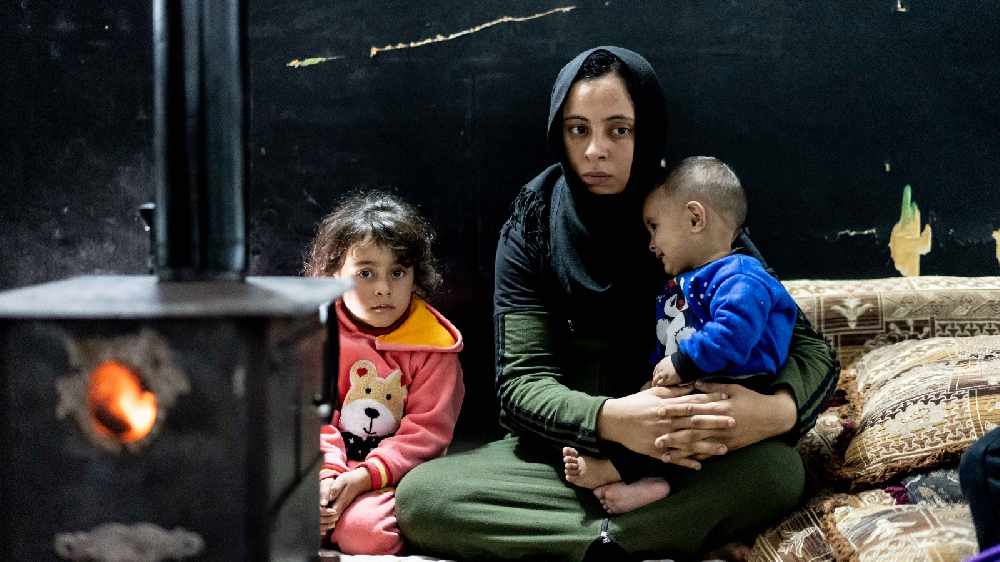
Charles Lawley, from Denton based charity Syria Relief, is currently in Lebanon helping out on refugee projects and wrote this diary on what life is like out there.
After a late-night flight from the UK, we arrived in Chtuara, Lebanon ready for a deployment for winterization projects in the refugee camps in Lebanon, just shortly after midnight. We all awoke, bleary eyed, a few hours later, to hear from our team in Idlib about the escalating crisis there. UNOCHA have said that the number of people who have fled since December 1st has hit 350,000. This was coupled with reports of airstrikes on markets across the south of the province.
We headed to the camps in Barelias, just a few kilometers away from the Syrian border, almost equidistant between Beirut and Damascus.
First we visited a healthcare centre which treats Syrian refugees for everything from asthma to prosthetic limbs for victims of the conflict. Respiratory problems are currently the most prevalent issue facing Syrian refugees in Lebanon. The rain has been relentless this winter and it is causing a lot of damp and mold in the tents, which in turns is leading to bronchitis and causing further respiratory health problems. The families here desperately need better shelter.
The first family we spoke to, I knew would be an overwhelming experience emotionally from the moment I stepped into their makeshift home. The plastic sheets which cover their roof was leaking and the mold from the walls filled your lungs as soon as you took your first breath. This home belongs to Saffa who, at just 21-years-old, is a courageous young mother who faces challenges, I as a parent, could not ever imagine.
Saffa fled her home in Dara’a in 2018, after the conflict became too unbearable, hiding in her basement to stay alive during airstrikes had become the daily routine for her young family. Her 4-year-old son, Malik, is seriously ill. Last week she was convinced Malik was about to die as he could barely breathe. The mold in her home exacerbates the hole in his enlarged heart. Doctors say Malik needs a CT scan because, at 4, he cannot walk or talk and is underdeveloped. They are convinced there is an issue with his brain, but until they can afford the scan, they do not know what they need to treat. “I wish I could take the illness out of Malik’s body and put it into mine.” Saffa says.
However, Saffa can barely afford the medicine. She has to sell some of the food she, like all refugees, receives from NGOs to pay for medicine, then beg her neighbours for food for her children. “I have never bought meat” she tells us, ashamed, and tells us that, too often, she has to send her children to bed hungry. “God help us” she says, overcome with emotion. All she has is her faith.
They were eating their breakfast as we entered, it was just tomato paste with chillis (she adds chillis to warm them up during the cold winter months) with bread. Her husband goes into town to work every day to do absolutely anything and everything. He is often exploited because of his family’s desperation.
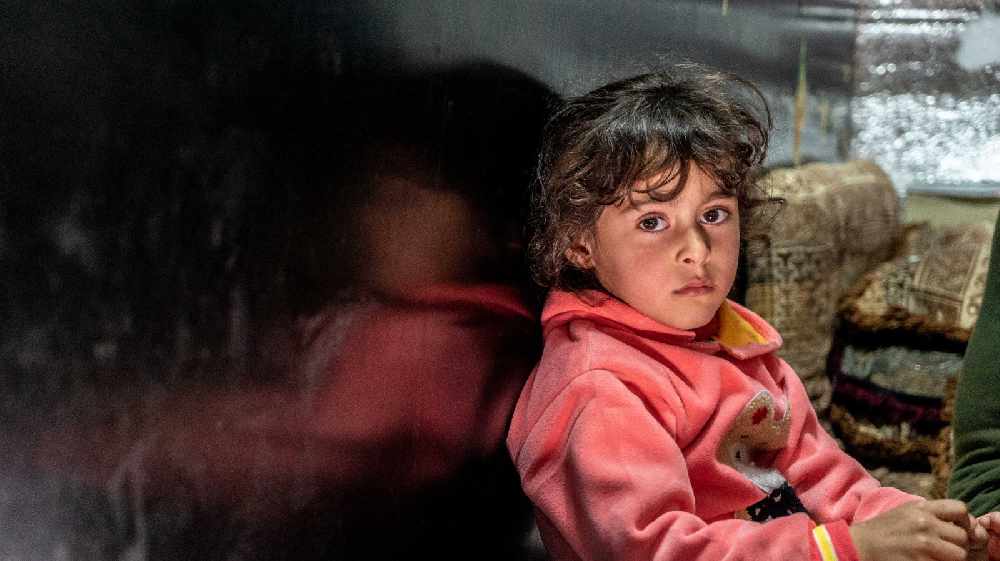
Shahed, Malik’s 6-year-old doting big sister places a blanket over him as he begins to start breathing heavily again. Mailk is drinking a bottle of what we think is milk, however she tells us she cannot afford the milk he needs, so he is drinking labneh (yoghurt) with water and sugar. The sugar is causing his teeth to rot, but he needs the calories to survive.
When NGOs like Syria Relief ask you to donate money for blankets, you would be forgiven for thinking that they are just used to keep people warm. However, Syrian refugees have to use them for many purposes; for flooring to stop the rain seeping under the tent; as dividers so people can have a modicum of privacy in the fabricated tent they live in;, sometimes to even plug holes to stop the rain coming in through the roof. A blanket, to a Syrian refugee family, is so much more than just a blanket.
Saffa is in over $200 in debt with a local vendor who has taken pity on her because she was unable to pay for the food her family needs. She promises she will pay one day, but it will take her a lifetime to pay that debt. At just 21, little more than a child herself, Saffa says she has no future, she cannot imagine what tomorrow looks like. Getting through today is too much of a struggle.
Whilst Saffa was distraught and desperate, a few tents down, we spoke to someone who’s mood was a lot different, 5-year-old Anas. Anas is visually impaired, but the most outgoing and confident child you could ever meet. Despite being in desperate need of corrective eye surgery in order to see, he has optimism and hope in abundance.
Anas accosts us as we are walking through the flooded paths between the tents of the camp. “Food, food!” he demands, taking us by the hand. Despite many of these families not having enough food to feed themselves, they want to try and feed you – such is the famous Syrian hospitality.
“Please help me get treatment to fix my eyes” he asks with a big smile on his face. I ask him what he will do when his eyes are fixed. “I want to get my eyes fixed so I can go to a theme park and eat chips.” He says. What more could a 5-year-old boy want?
Despite not being able to see, he has such vision. He dreams of a better tomorrow at a theme park. However, most Syrian refugees in this camp, like Saffa, can only dream of getting their family through today.


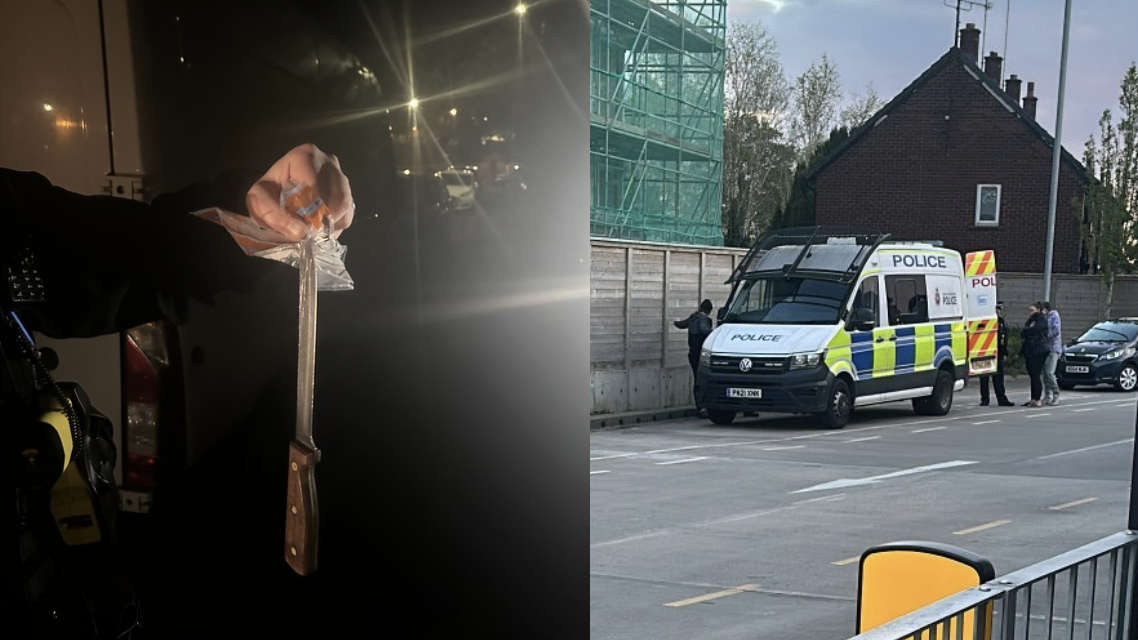 "I don't know what I'm going to face each day": Staff member speaks out after increase in knife crime at Ashton bus station
"I don't know what I'm going to face each day": Staff member speaks out after increase in knife crime at Ashton bus station
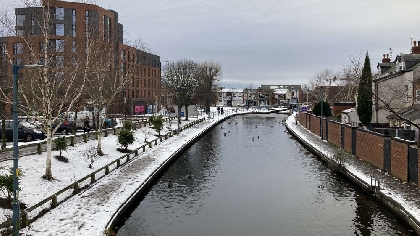 Town hall bosses sign off on redevelopment of western Stalybridge
Town hall bosses sign off on redevelopment of western Stalybridge
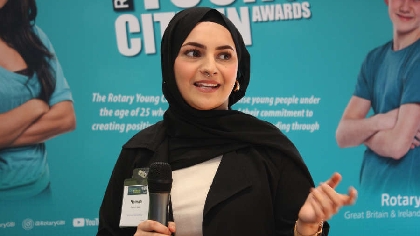 Adventure-loving Naimah wins top Rotary Club award
Adventure-loving Naimah wins top Rotary Club award
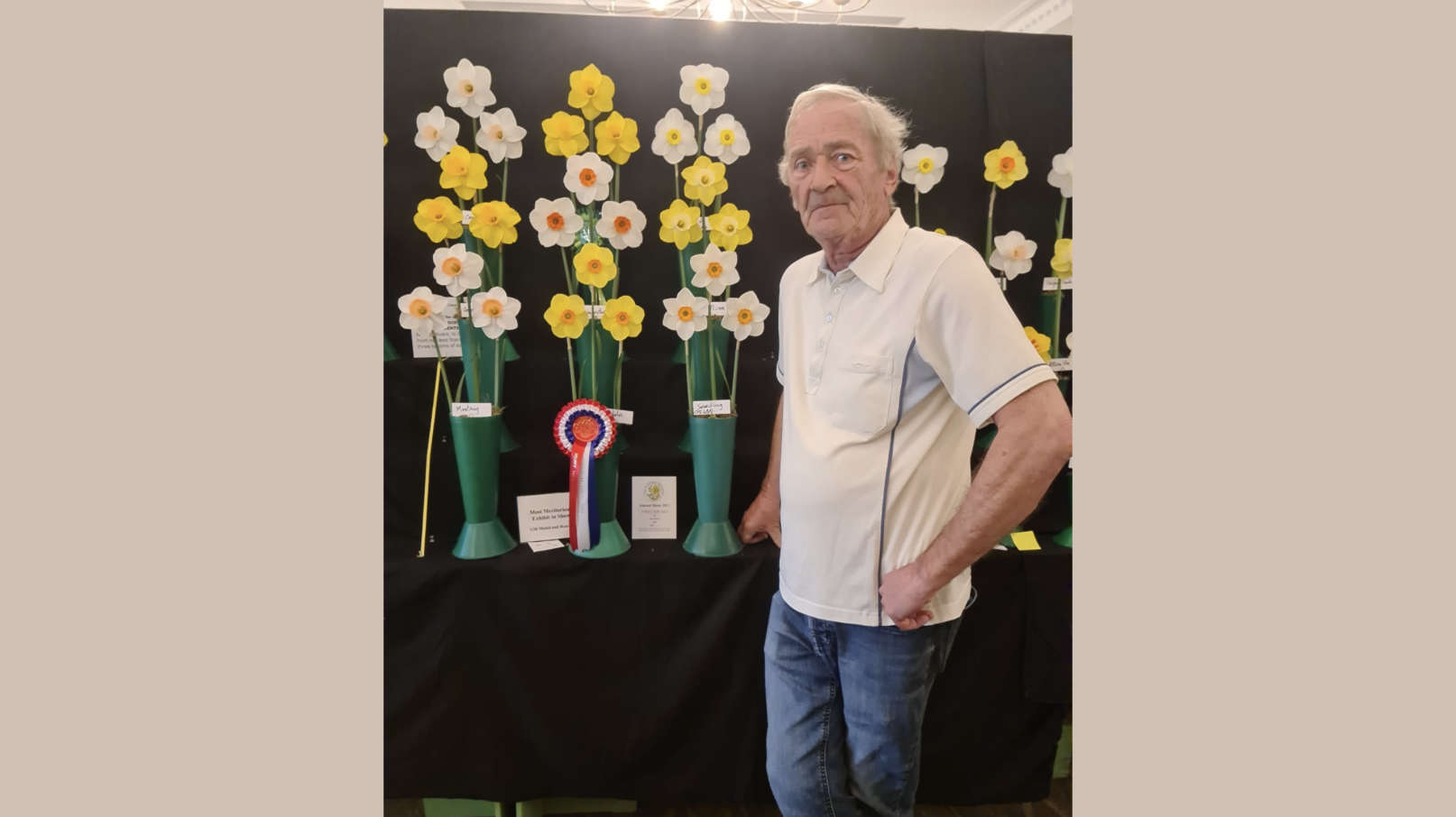 Ken’s prize winning daffodils showcased on national TV
Ken’s prize winning daffodils showcased on national TV

